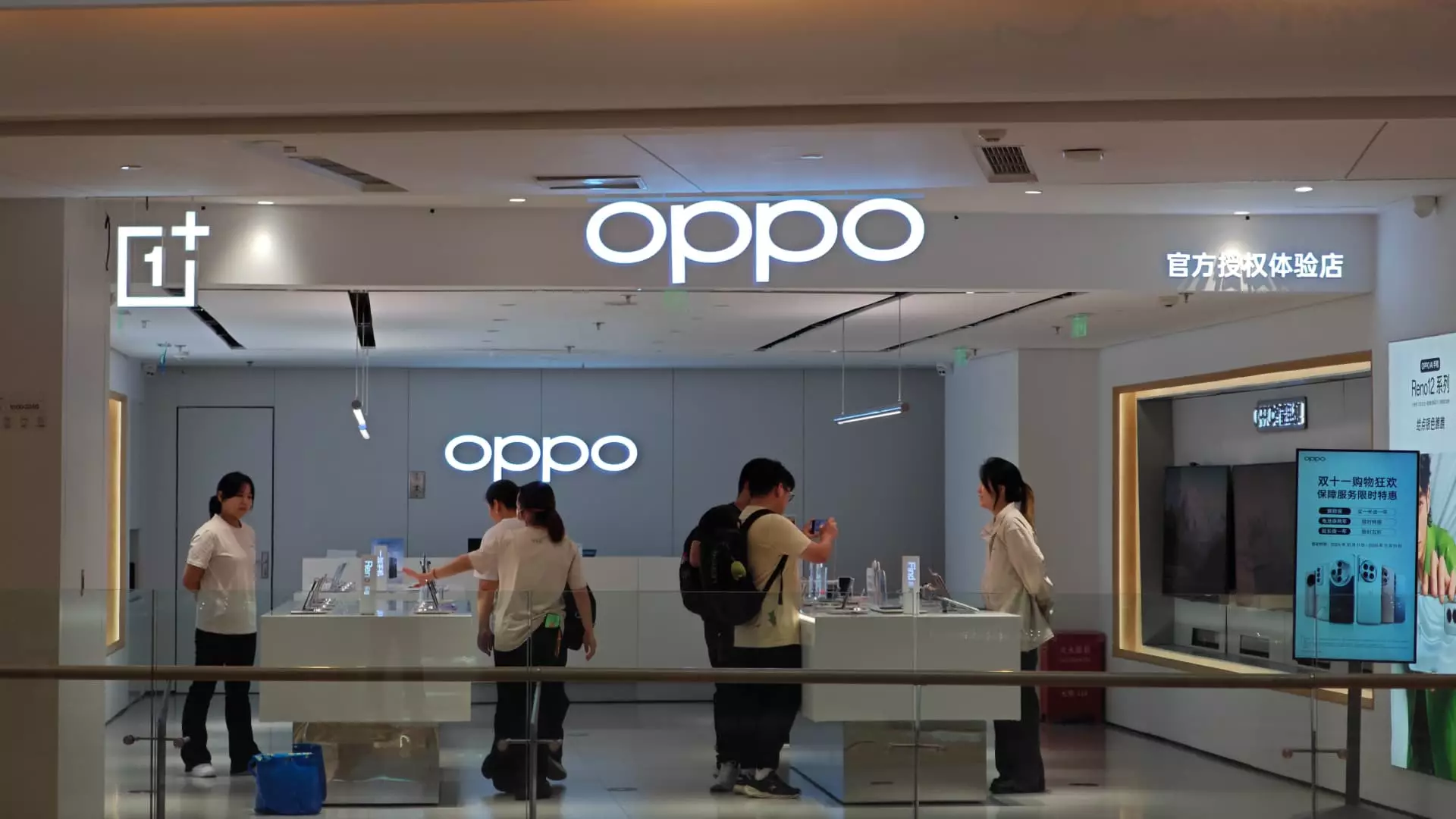Oppo, the Chinese smartphone giant, is aggressively pursuing advancements in artificial intelligence (AI) as it prepares to launch its flagship phone in international markets. With weekly dialogues held with key management figures from tech powerhouses like Google and Microsoft, Oppo is positioning itself as a significant player in the AI-infused application race. This strategic alignment is not purely opportunistic; it symbolizes a broader trend within tech industries where giant firms are increasingly incorporating generative AI—technologies capable of producing human-like responses—into their products and services. As the competitive landscape heats up, Oppo is keen to leverage these collaborations to address specific consumer needs.
Billy Zhang, Oppo’s president for overseas markets, emphasized an approach characterized by listening to consumer feedback. “Google will also come to China to ask us, what needs and pain points do you have with your products? Let’s solve them together,” he communicated, revealing a proactive strategy that centers on problem-solving and customer satisfaction. By claiming a robust consumer insight base, Oppo aims to tailor its AI innovations to enhance user experience.
While Oppo is deeply rooted in its home market, the company has been focusing on expanding its footprint across Europe and Southeast Asia, with around 60% of its smartphone shipments directed toward these regions. Despite its global ambitions, Zhang clarified that there are no immediate plans to enter the U.S. market. The company has established itself as the fourth-largest smartphone manufacturer in the world as of the third quarter, capturing 9% of global shipments—a commendable feat in a marketplace dominated by Samsung and Apple.
The noteworthy point here lies not only in the numbers but also in the potential for deeper engagement with AI applications, especially considering that analysts view Chinese companies as having a competitive edge when it comes to consumer-facing AI. Despite the challenges imposed by U.S. export restrictions on high-end components, Oppo remains undeterred, fueling its ambition of integrating advanced AI functionalities into its devices.
Oppo is on the brink of unveiling its flagship Find X8 series, an exciting announcement that promises the integration of cutting-edge AI tools like Google’s Gemini for writing and recording summaries, alongside Microsoft’s text-to-speech features. These advancements have the potential to bring a new dimension to user interactivity, blazing a trail in smartphone capabilities.
Moreover, Oppo has ambitious plans of incorporating generative AI into a whopping 50 million devices within this year alone—an endeavor that indicates not only foresight but also a robust commitment to innovative technology. Current AI features enable users to refine their photos, demonstrating Oppo’s ability to integrate practical and engaging applications of AI into its product lineup.
The company also revealed that it has created its proprietary AI models since 2020, marked by the establishment of an AI center aimed at fostering internal innovation. Zhang stated, “AI is the most important area for tech in the future. All industries can be transformed by AI.” This foresight aligns with the global trend where generative AI is predicted to surge from 46 million shipments in 2022 to an astounding 732 million by 2028, indicating vast market potential.
In addition to enhancing consumer technologies, Oppo is also making significant strides in automating its manufacturing processes. As part of its operational upgrades, the company has implemented a digital management system across its factories in multiple countries, initiating the transition with India and Indonesia.
With about 8% of labor replaced by machines in a factory near Shenzhen, Oppo is reallocating its workforce to focus on producing more sophisticated devices. Manufacturing director Danny Du highlighted the considerable improvements achieved, noting a dramatic reduction in production costs by nearly 40% over three years. This technological integration has expedited production timelines from 16 days down to just six—an essential development in meeting fluctuating market demands and minimizing unsold inventory risks.
The combination of AI-enhanced manufacturing and product innovation positions Oppo as a forward-thinking contender in an increasingly competitive industry, where rapid adaptability and technological integration are paramount for success.
Oppo’s strategic focus on AI is not merely about keeping pace with industry competitors; it’s about setting a new standard for what consumers can expect from smartphones. With a rich ecosystem of partnerships, an eye on global market expansion, and an intrinsic commitment to technological innovation, Oppo stands to influence the smartphone landscape significantly. As the lines between AI capabilities and consumer needs continue to blur, the company is well poised to redefine both its product offerings and operational efficiencies, navigating this new digital frontier.

